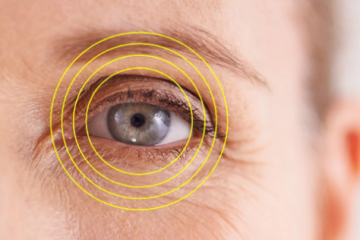In today’s always-on culture, getting a good night’s sleep has become more challenging than ever. With endless notifications, late-night scrolling, and demanding schedules, many people struggle to wind down and fall asleep naturally. Yet quality sleep is critical for our physical health, emotional balance, and mental clarity.
Fortunately, improving your sleep doesn’t require a complete lifestyle overhaul. A few intentional changes to your evening habits and environment can help you sleep smarter—even in a world full of distractions.
Create A Consistent Sleep Schedule
One of the simplest yet most powerful ways to improve your sleep is by sticking to a regular bedtime and wake-up time. Your body thrives on routine, and going to bed at the same time every night helps regulate your circadian rhythm. Even on weekends, try to avoid drastic changes to your sleep schedule.
This tip often forms the foundation of wellness-focused content. If you’re a health writer, this topic can be a strong angle for a guest post submission to blogs centered around lifestyle, self-care, or holistic wellbeing.
Limit Screen Time Before Bed
Blue light from phones, tablets, and laptops can suppress melatonin—the hormone that signals your brain it’s time to sleep. Aim to turn off screens at least 30 to 60 minutes before bed. If you absolutely must use a device, consider switching on night mode or using blue light filters.
Replacing screen time with calming activities like reading, journaling, or listening to soft music can help signal to your body that it’s time to rest. This is a great topic for writers involved in guest blogging on tech wellness or digital detox platforms, as it intersects health with mindful technology use.
Create A Sleep-Friendly Environment
Your bedroom should feel like a sanctuary for rest. Keep the room cool, dark, and quiet. Blackout curtains, eye masks, and white noise machines can help eliminate distractions. Choose a mattress and pillows that support your preferred sleep position and comfort level.
Avoid using your bed for anything other than sleep and relaxation—this helps your brain associate the bed with rest, not stress or work. Articles centered on sleep environment upgrades are always welcome on home and wellness guest blogging sites, especially those that offer home improvement or product recommendation content.
Be Mindful Of What You Eat And Drink
Caffeine, alcohol, and heavy meals can significantly disrupt your sleep. Try to avoid caffeine in the late afternoon and evening, and limit alcohol close to bedtime. While alcohol might help you fall asleep initially, it can interfere with your sleep cycle and cause early waking.
Instead, opt for light snacks like almonds, bananas, or chamomile tea that promote relaxation. Nutrition and wellness bloggers may find success when they submit a guest post on this topic to health food or lifestyle blogs looking for evidence-based sleep content.
Incorporate Relaxation Techniques
Calming practices like meditation, deep breathing, or progressive muscle relaxation can help ease your mind and body into a restful state. Apps like Calm or Headspace offer guided meditations specifically for sleep. Even just a few minutes of deep breathing can lower your heart rate and reduce stress before bed.
These relaxation tools can also be explored in guest blogging formats focused on mindfulness, yoga, or mental health, offering practical tools to a wide range of readers seeking better sleep.
Conclusion: Make Sleep A Priority, Not A Luxury
Better sleep doesn’t happen by accident—it’s the result of conscious daily habits. By optimizing your sleep environment, limiting digital distractions, and embracing calming rituals, you can fall asleep faster and wake up feeling more refreshed. And if you’re passionate about helping others improve their rest, consider guest post submission to wellness publications or guest blogging sites that welcome new voices. When you submit a guest post with helpful, practical tips, you not only build your own authority—you might also help someone finally get the quality sleep they’ve been dreaming of.



